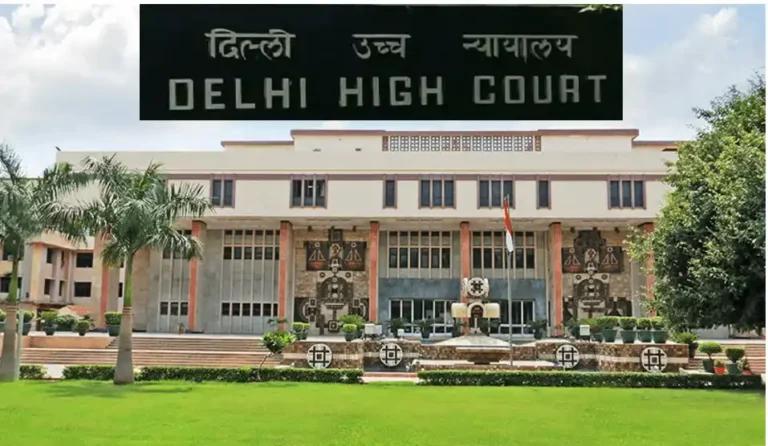The Delhi High Court recently issued a strong message against the trend of false rape complaints, emphasizing that such cases not only increase the burden on an already overloaded judicial system but also cause serious injustice to real victims of sexual violence.
“Every false complaint contributes to not just unnecessary load on the overflowing dockets, but also to the artifacts of crime, generating an impression in the society about falsity even of genuine complaints, thereby causing grave injustice to actual rape victims,”
— Justice Girish Kathpalia
This observation was made while dismissing a petition to quash an FIR filed by a married woman against her neighbour. The woman had accused him of repeatedly raping her, forcing her into unnatural sex, physical violence, abortion under duress, and threatening to circulate her nude photographs and videos.
Despite arguments that the woman had later married the accused and supported the petition to quash the FIR, the court refused. The judge highlighted that if the complaint is true, allowing such a marriage would be like rewarding the rapist. On the other hand, if the complaint was false, the woman must face legal consequences for misusing the justice system.
“If the complaint lodged by the prosecutrix contained truth, would it be justified to push her into the matrimonial fold of her tormentor, thereby granting premium to the rapist?”
— Delhi High Court
The woman’s original allegations included being forced into physical relations, taken to hotels under threats, raped, blackmailed, and later manipulated into divorcing her husband. She also accused another family member of molestation. These serious allegations were later reaffirmed by her under Section 164 CrPC in front of a magistrate.
The court considered multiple legal precedents, including Gian Singh v. State of Punjab and Narinder Singh v. State of Punjab, both of which confirm that while High Courts have the power to quash even non-compoundable offences under Section 482 CrPC, such power should be used cautiously—especially in heinous cases like rape.
“Heinous and serious offences of mental depravity or offences like murder, rape, dacoity, etc. cannot be fittingly quashed even though the victim or victim’s family and the offender have settled the dispute,”
— Supreme Court in Gian Singh v. State of Punjab
The court noted that the alleged marriage between the complainant and the accused occurred just 10 days before the police submitted the chargesheet. This raised concerns about whether the marriage was genuine or done under pressure to derail the criminal process.
Additionally, the investigation included recovery and forensic analysis of mobile phones and social media content, as the accused had allegedly uploaded then deleted compromising videos.
While the petitioner’s lawyer argued that the woman would likely turn hostile in trial and that the case had no chances of conviction, the court disagreed. It stressed that such assumptions cannot be the basis for quashing serious criminal allegations, especially when investigation and evidence collection are still ongoing.
“The trend gradually setting in across the society to lodge false complaints with impunity and thereafter retract, needs to be checked,”
— Justice Girish Kathpalia
The Delhi High Court concluded that neither the complaint nor the proceedings could be considered an abuse of legal process. It affirmed that if the complaint is false, the law will take its course, and if true, the accused must face full trial.
Accordingly, the petition to quash FIR No. 92/2024 registered at PS Jamia Nagar under Sections 376, 377, 323, 313, 506, 509, and 34 IPC was dismissed.
Title: SHAFEEQ AHMAD & ORS v. STATE OF NCT OF DELHI & ANR















